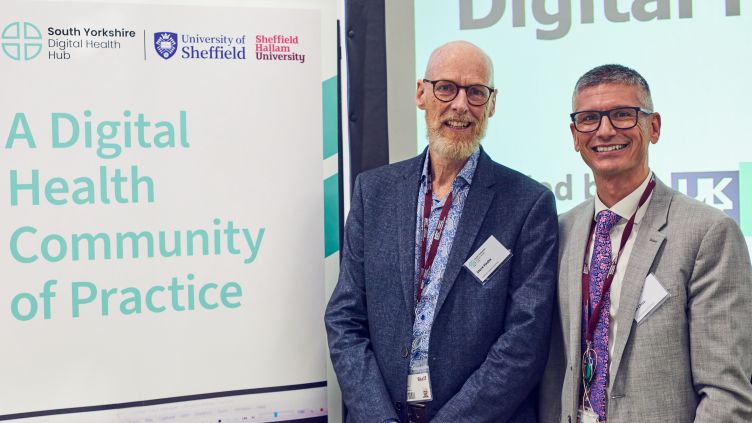
The programme will bring together patients, healthcare professionals, researchers and industry to develop new ways to use digital information and technologies to improve healthcare. It offers a fantastic opportunity for digital businesses in the region to explore how they might be involved in creating new data-led healthcare products and services. The programme will operate through three calls, with applications for the first call open from 1st to 15th of February.
What is the SY Digital Health Hub?
The South Yorkshire Digital Health Hub (SYDHH) is a joint project of the University of Sheffield and Sheffield Hallam University, supported by funding from the Engineering and Physical Sciences Research Council (EPSRC). The Hub’s purpose is to tackle healthcare inequalities and transform how patients are treated in South Yorkshire.
The Hub’s Innovation Pipeline programme is focused on improving population and individual health by co-creating novel technologies that gather daily life data and fuse this with routine NHS health and social care data. The programme aims to create a community of practice, involving patients, carers and clinicians as well as researchers and technologists who will work together to address key problems faced by people in South Yorkshire.
Patient and public engagement is key to the programme. Initial work with a “Citizens’ Jury” has identified the following priority health conditions and groups:
- Mental health and people living with mental health conditions.
- People living with long term health conditions, particularly high blood pressure, diabetes, dementia and Alzheimer’s disease.
- Individuals identified at higher risk of particular conditions, such as through family history.
- People who are terminally ill.
- People living with disabilities.
While this list is not exclusive, any ideas should be problem-focused, involve some aspect of data and address an unmet health need.
The Citizens’ Jury also made some important recommendations around principles and priority aims around innovation in digital health. You can read those recommendations here.
How will the Innovation Pipeline programme work?
The programme will be problem-led; the aim is to create teams of people who will work on developing solutions, rather than on developing or applying existing solutions. Each wave of the programme will operate in two phases. The first phase involves selecting problems, forming teams around them and then providing intensive training to support the team in developing and testing their concept. The second phase involves a funding panel, where teams will pitch their concepts for further development. The expectation is that most of the funding will be in the £10k-£20k range, with a few at £50k and the option for larger amounts for exceptional ideas. Support and training will continue after the funding panel and those teams that were not successful in the panel will be helped to look for funding from other sources.
The timetable for the first call is:
- Sandpit applications open 1st Feb – 15th Feb
- 4th March – in person sandpit
- April – concept testing with PPIE
- June – funding panel applications
Some additional notes:
Mel Kanarek attended the webinar for the launch of the Innovation Pipeline and the information in this blog post comes from that and from the SYDHH website. The webinar was recorded, you can watch it here and read the programme FAQs here. We also recommend keeping an eye on the SYDHH website for news of when the sandpit applications open. In the meantime, Mel is trying to arrange a meeting with the Hub team to discuss how the Sheffield Digital community can engage with their work.